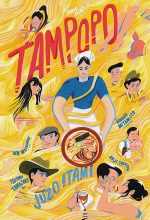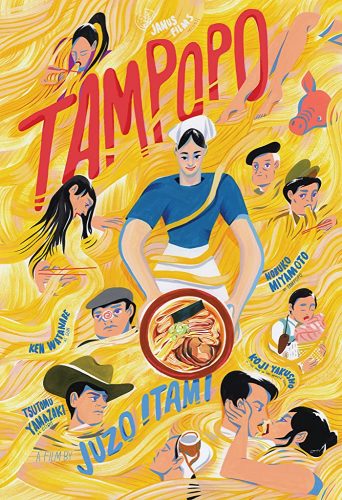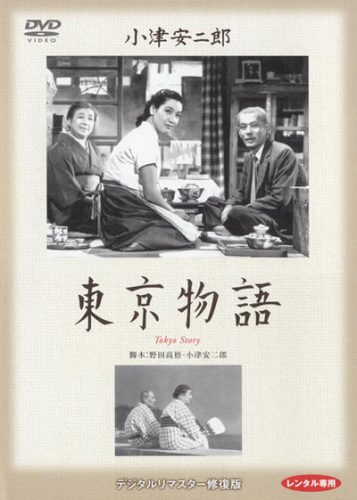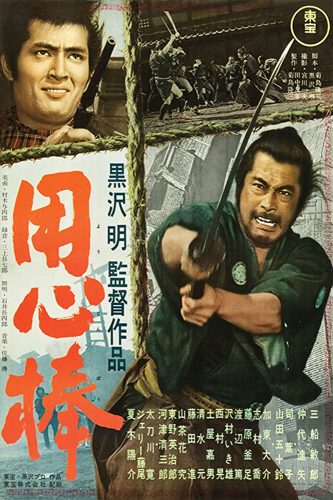An Anime Fan’s Guide to Japanese Cinema


Although anime, manga, and video games have arguably been Japan’s most prominent cultural exports of the post-war era, Japanese filmmakers have produced an amazing and continuing legacy of excellent movies that also deserve your attention! That’s why we’re introducing some classic titles to serve as an introduction to the fascinating world of Japanese film with an emphasis on appeal and relevance to anime fans. Roll film, let’s start! Action!
Tampopo (1985) - A Surreally Delectable Food Comedy
An offbeat, satirical “Ramen Western” comedy, Itami Juzo’s Tampopo, which means dandelion, is a deeply unique and quintessentially Japanese film built around the theme of food. Although there is a main plot revolving around a pair of cowboy-esque truck drivers Goro and Gun who are helping the widow owner of a struggling ramen shop get her noodles up to snuff, one thing that immediately stands out in Tampopo are its many cutaway vignettes that feel very much akin to “segmented”, 4-koma style anime/manga like Nichijou. These scenes, and the movie itself, are sometimes similarly bizarre and provocative, like with its white-clad, fourth-wall-breaking gangster character directly addressing the audience at the beginning, not to mention the film’s famous food sex scene which was directly referenced in FLCL, eggs and all. Altogether, Tampopo is a smart film that weaves a lot of social commentary into its stories while still being very entertaining and frequently hilarious and is a definite must-watch for comedy fans, particularly those who enjoy satire and parody.
Battle Royale (2000) - A Captivatingly Intense Action/Thriller
In terms of influential Japanese films, not just on anime, Battle Royale is arguably one of the most prominent works of the last decades and rose despite its initial controversy and limited, restricted release in Japan and abroad to basically establish a new genre onto itself that spans books, manga, sports, video games, etc., many of which have become huge in their own right like Fate/stay night, Mirai Nikki (Future Diary), Danganronpa, The Hunger Games, Zero Escape, PUBG, etc. As for Battle Royale itself, it is a dystopian action thriller following a class of middle school students who are taken to a remote island and forced to compete in the titular battle royale where they are spread out, given supplies and weapons, and must kill each other in three days until a victor emerges or else face death themselves for not cooperating thanks to the explosive collars strapped around their necks. Needless to say, Battle Royale is an intensely violent and potentially disturbing film but also a solidly constructed and thought-provoking one with many interesting aspects that make it compelling to this day. Battle Royale is undoubtedly a phenomenon that fans of works it inspired should see for themselves.
Tokyo Story (1953) - A Deeply Japanese Slice of Life Drama

Swinging very much in another direction, we have Tokyo Story, a family drama widely considered to be director Ozu Yasujiro’s masterpiece as well as one of the greatest films of all time by many directors and critics. This story, as you might expect, takes place in Tokyo where an elderly couple from rural western Japan is visiting their adult children. The film explores the changes and struggles with the traditional Japanese family structure in the post-war period and is exemplary of Ozu’s distinctive, slow-paced style and unusual camera and editing work that is often described as zen-like or minimalist and, in some ways, feels reminiscent of the similarly unorthodox approaches in SHAFT anime like Bakemonogatari. There’s also a deep sense of nostalgia, or more specifically mono no aware, that permeates many of Ozu’s films, including Tokyo Story. These aspects almost play out like a reversal of Studio Ghibli's Omoide Poroporo (Only Yesterday) which follows a young woman who escapes Tokyo to find her place of belonging in the countryside after feeling disillusioned with city life and nostalgic for her childhood. Arguably, quite a number of rural-focused anime like Non Non Biyori could be compared to Tokyo Story but, in any case, it is a strong recommendation for fans of slice of life anime that deal with serious, real-world themes like family and growing up, as are the other "Noriko trilogy" Ozu films Late Spring (1949) and Early Summer (1951).
Yojimbo (1961) - An Exemplary Samurai Action Flick

Kurosawa Akira is arguably the most famous Japanese film director, at least internationally, and Yojimbo, as a samurai story, is closer to what most people probably imagine when they think about Japanese movies than some of the others we’ve covered here. None of this makes it any less of an important film or recommendation for anime fans. Yojimbo follows a masterless samurai, or ronin, in the final years of the Edo Period who wanders into a small town being ripped apart by two rival gangs and cleverly plays them both against each other to save the town. Simply put, Yojimbo is a masterfully crafted action movie in all respects that was extremely influential in both its style and story which directly inspired countless other works from the Scyther and Electabuzz rival gangs in the “Showdown at Dark City” episode of the Pokémon anime to a prominent reference to Mifune Toshiro’s character in the tenth episode of Keep Your Hands Off Eizouken! and beyond, including its famous spaghetti Western remake as Sergio Leone’s A Fistful of Dollars and a more modern reimagining in the 2001 anime series Kaze no Yojimbo. Basically, if you dig solid action anime, especially samurai stuff, Yojimbo is a must-watch as our many of Kurosawa’s other, similarly hugely influential films like Rashomon, Seven Samurai, Sanjuro, Kagemusha, etc. whose legacies can be seen in numerous anime series as well as the likes of Star Wars and Quentin Tarantino.
Final Thoughts
Altogether, we think these films are some of the best introductions to Japanese cinema out there with a wide variety of styles and themes that anime fans of different kinds can enjoy and appreciate. Would you like more Japanese movie recommendations? Please let us know what you think in the comments section below! Until then, be sure to stick around Honey’s for more of all things awesome, classic films and otherwise! See ya~

No comments